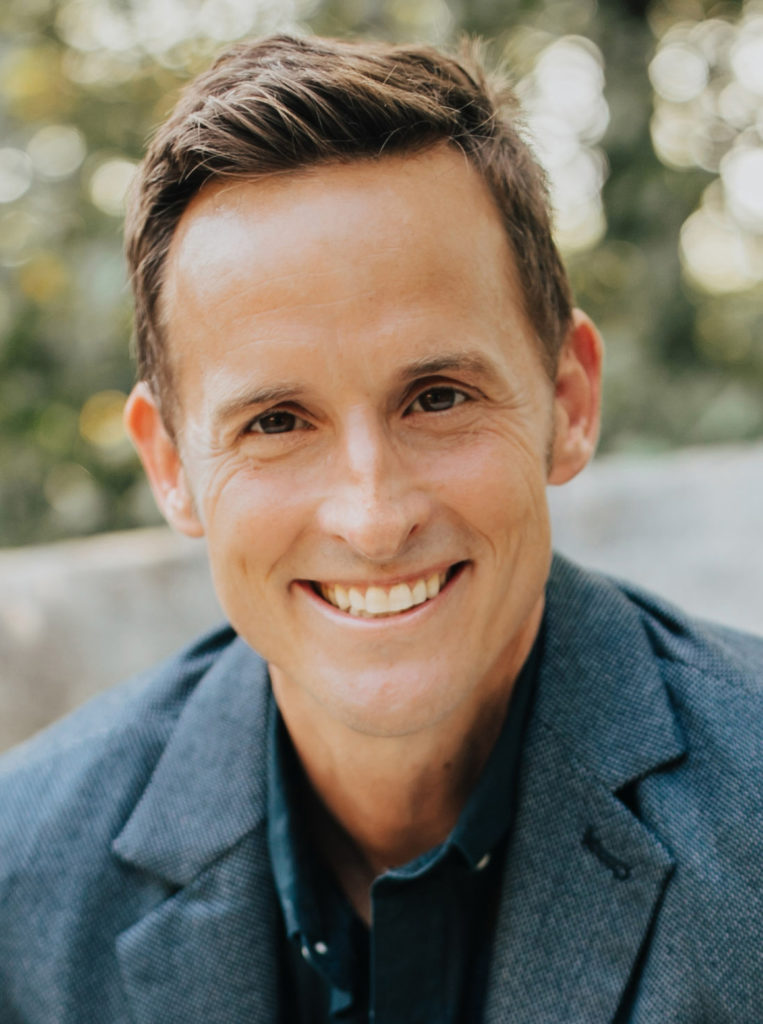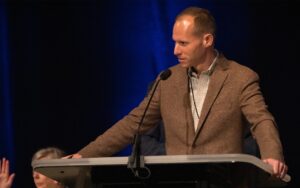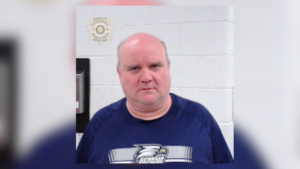
 Editor’s Note: Ben Mandrell is the president and CEO of Lifeway Christian Resources.
Editor’s Note: Ben Mandrell is the president and CEO of Lifeway Christian Resources.
NASHVILLE (BP) – “Too fast!” my wife Lynley screamed as I drove down a steep hill caked in snow. The vehicle picked up speed like a roller coaster on first fall.
“I grew up driving in this!” I snapped, more than slightly annoyed that she doubted my driving. Moments later all six Mandrells were sledding sideways, out of control and bracing for impact. By the grace of God, the SUV stopped just short of a concrete embankment. We were safe, but we were stuck. With a frazzled family and spinning tires, I looked for a friendly passerby – someone to pull us out of this mess.
Looking back on that moment makes me think about pastors who are feeling emotionally stuck. Sadness, depression, bitterness, unresolved anger – all these emotions can cause a spiritual leader to fantasize about running fast from ministry and working in a less draining environment.
In a recent Lifeway Research survey among pastors, we heard painful responses such as, “I feel the weight of the ministry of this church lays totally on me” and “There is a tremendous sense of loneliness.” This is just the tip of the iceberg; there were pages and pages of open-ended answers that echo similar sentiments.
Perhaps you are that pastor, and you need some help getting out of the ditch. Reaching out to a counselor requires courage, but it seems that too many pastors resist taking this important step. I’m so grateful that there are state conventions within the SBC that recognize this need and are able to offer financial support for pastors who seek biblical counseling.
This short list is by no means exhaustive, but in my experience, here are three of the reasons pastors avoid counseling when they need it.
- I don’t have my sermon done.
The weekly project of drafting an inspirational, biblically solid sermon is pressurized. Sure, there are weeks when the sermon seems to write itself and the church staff works in one accord.
But a consistently harmonious church doesn’t exist on this side of heaven. Because someone is always suffering, feuding, drifting, posting their angst on social media or sending scathing emails, the pastor is regularly knocked off course. The sermon prep is pushed to later in the week, and there just isn’t time to sit before a counselor and process feelings.
Pastors are notoriously weak at self-care. Like the injured quarterback, a pastor finds it difficult to sit the bench and give the arm a rest. In our bravado, we want to play through the pain, grind out another week, and crank out another sermon. Eventually, this short-sighted mindset will lead to burnout. Preaching is important but preaching from the overflow of a healthy soul is more important.
- I don’t want people to think I’m weak.
Jesus was clear that He came to earth to help the sick. Believe it or not, pastors are included in this category. We falsely believe that because showing the church signs of fragility may not be well received, it’s best to carry the wounds alone.
During this COVID season, Lynley and I decided to seek out a counselor to help us navigate some pains we’ve struggled to process. It was the best decision we’ve made in the pandemic. Our skilled counselor is teaching us how to be honest with ourselves, to pay attention to the emotions we are experiencing, and to be vulnerable with one another in a way all husbands and wives should be.
I am embarrassed to say that fear prevented me from seeking this kind of help while I served as a pastor. I was worried that Lynley and I would open up a painful can of worms and it wouldn’t get cleaned up by Sunday morning. Heaven forbid that the church sense negative vibes between the pastor and his wife!
Pride. It’s in all of us. If people find out a pastor is seeing a counselor, they may think he’s unfit for the role. Or, they may think he’s human and relatable, finding a deeper connection with his leadership. Think about that. I wish I had.
- I should be able to find rest in Jesus.
I’ve had this thought, and I’m sure most pastors have also: Jesus is sufficient. I need no help from man.
Support for this mindset is easy to find in the Bible. Scripture is overflowing with passages challenging believers to place their trust in Christ, to take on His yoke, to cast all cares upon Him. It’s easy to believe the underdeveloped, unspiritual people are in need of counseling, but surely not seminary-trained professionals like me.
While the Word certainly calls us to lean on the Lord in times of trouble, Scripture also reminds us often that we are not an island, that we need to call upon the gifts of others to find healing. This includes counseling.
Pastor, are you exhausted, stuck in a rut or bitter toward others? Are you inexplicably sad, perpetually anxious or dreaming of an escape from your life? If so, seek help and schedule some sessions with a solid biblical counselor. When our tires are spinning, it doesn’t help to keep pressing the gas. There are people gifted by God to help us get back on the road to mental, emotional and spiritual health.
NAMB, through a partnership with Focus on the Family, offers a free hotline for Southern Baptist pastors: 1-844-4PASTOR.
















